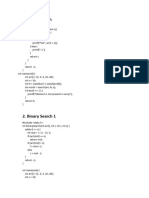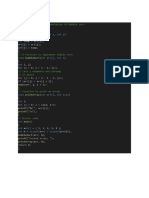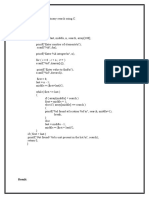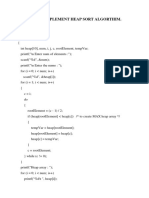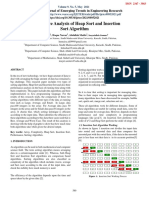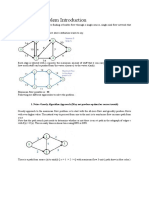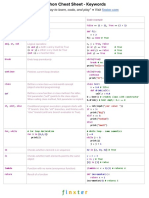0% found this document useful (0 votes)
13 views19 pagesDaa Lab Manual
The document contains multiple programming exercises demonstrating various algorithms including linear search, binary search, merge sort, depth-first search (DFS), breadth-first search (BFS), Warshall's algorithm, and Floyd's algorithm. Each section provides code examples in C for implementing these algorithms, along with explanations of their functionality. The exercises cover searching, sorting, graph traversal, and dynamic programming techniques.
Uploaded by
girishsanamCopyright
© © All Rights Reserved
We take content rights seriously. If you suspect this is your content, claim it here.
Available Formats
Download as PDF, TXT or read online on Scribd
0% found this document useful (0 votes)
13 views19 pagesDaa Lab Manual
The document contains multiple programming exercises demonstrating various algorithms including linear search, binary search, merge sort, depth-first search (DFS), breadth-first search (BFS), Warshall's algorithm, and Floyd's algorithm. Each section provides code examples in C for implementing these algorithms, along with explanations of their functionality. The exercises cover searching, sorting, graph traversal, and dynamic programming techniques.
Uploaded by
girishsanamCopyright
© © All Rights Reserved
We take content rights seriously. If you suspect this is your content, claim it here.
Available Formats
Download as PDF, TXT or read online on Scribd
/ 19

























